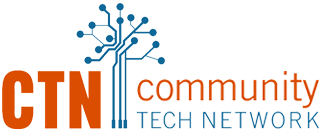Access to high-speed internet, or broadband, is a human right, yet 21 million Americans are still offline, creating a digital divide in which many individuals do not have access to the same resources. Due to already existing social and economic inequalities, certain groups are more likely to have limited access to broadband services than others.
Almost half of Americans without broadband at home are either Black or Hispanic (PDF), and large percentages of both races (70% of Blacks and 60% of Hispanics) report being “unprepared with digital skills, affecting their employability.” As more jobs move to remote formats, it is estimated that Black and Hispanic workers “without intervention … could be locked out of 86% of jobs by 2045.”
The situation is even bleaker in indigenous communities, which have been found to “have lower rates of coverage than anywhere else in the nation.”
Geographically, rural areas are much less likely to be connected. Since the broadband industry is largely profit-driven, major providers may be more likely to focus on serving urban communities, where there is more demand due to larger populations.
Income also plays a major role. For example, 80% of households with an income of $150,000 or more have broadband at home, while the same is true for only 21% of households that earn under $25,000 annually. Families cite the inability to pay as the number one reason they do not have a computer or internet at home.
Age is a factor as well, as older adults are less likely to be online than their younger peers. According to recent reports, 22 million (42%) older Americans do not have broadband access at home.
Those with disabilities are also less digitally connected. In general, 81% of adults use the internet, but this is true for only 51% of the disabled population.
Overall, the current system continues to reproduce inequalities. The aforementioned groups already face other unique structural barriers that can often hinder their success, and without access to the critical resources available on the internet, such injustices are only exacerbated. Intersectionality is also a crucial component of this equation, as individuals who hold multiple identities listed above are the least likely to be connected.
Stand with CTN as we fight for digital equity.


Comments are closed.